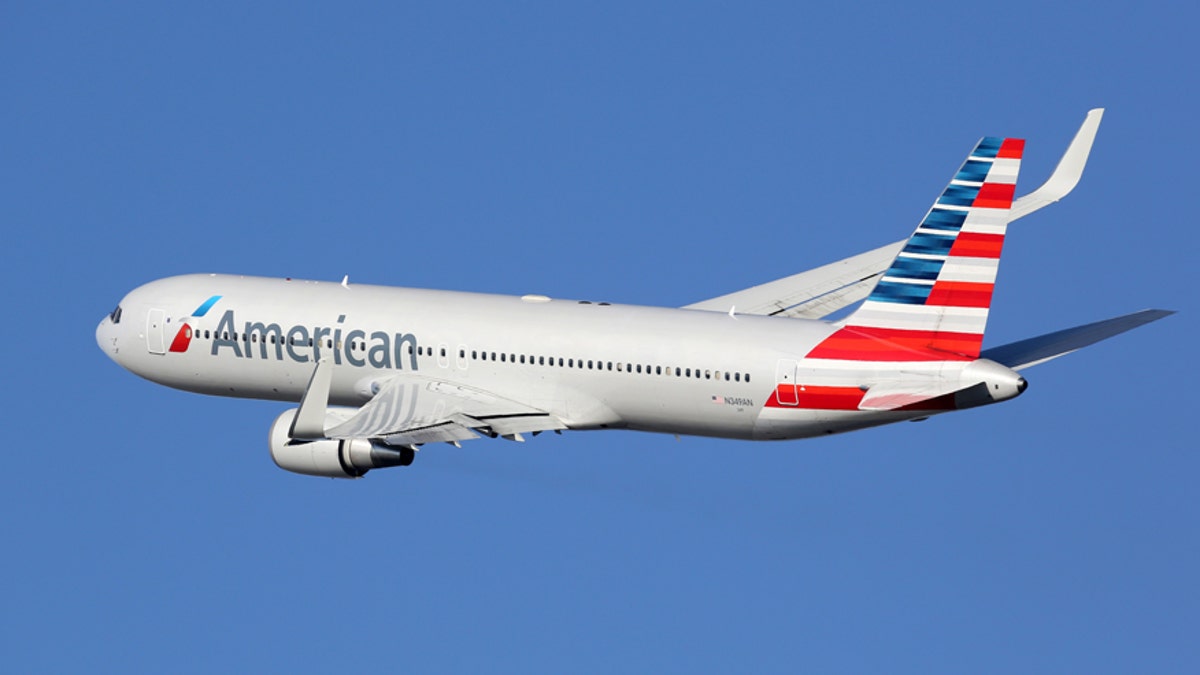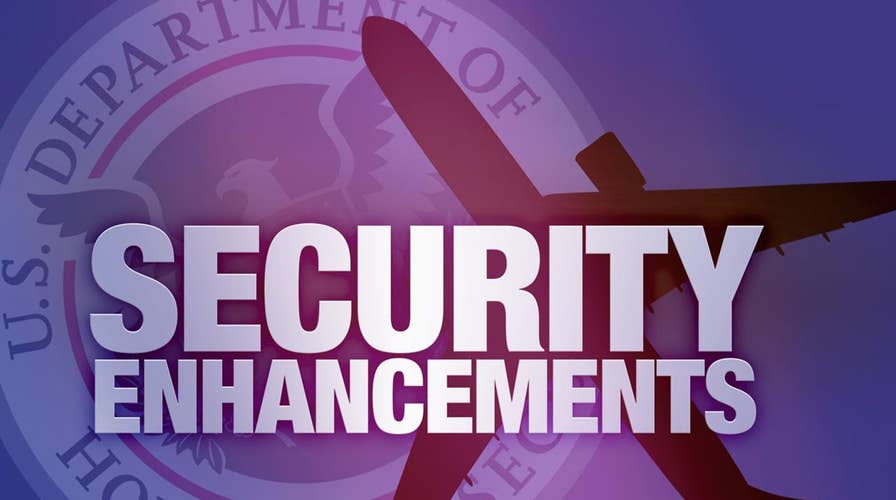European airlines are prepping for an expansion of the U.S. ban on bringing laptops and other large electronic devices inside the cabins of planes headed for American airports.
While no official announcement has been made, the U.S. has already banned laptops on board flights coming into the country from eight Middle Eastern and North African nations, and European transport and security officials are slated to meet with their American counterparts in Brussels on Wednesday to discuss the broadening of the ban to Europe.
Compared to the current ban on laptops and tablets, which affects around 50 flights a day into the U.S., expanding the ban to Europe would affect trans-Atlantic routes that carry as many as 65 million people a year on more than 400 daily flights, including business travelers who use laptops to work in-flight.
Two of Europe’s biggest airlines, Air France-KLM and Deutsche Lufthansa, have both said that while they are making preparations for a moratorium on the electronic devices, at the moment it is still business as usual in regards to traveling from Europe to the U.S.
“It is as yet unclear if and when the ban will take effect,” KLM said in a statement released on Friday. “KLM is keeping a close eye on developments and is preparing to take measures should the ban be announced. KLM will inform passengers if any changes affecting the check-in procedure for flights to the United States will occur.”
A spokesman for Lufthansa told Bloomberg News that the airline was working internally on a number of different scenarios for any extension to the ban, but in a statement to Fox News sought to reassure customers that it “was not provided with information on enhancements of the device ban by the U.S. authorities” and that “existing security procedures for Lufthansa Group-U.S. flights remain unchanged for the time being.”
Alain Bauer, president of the CNAPS, a French regulator of private-sector security agents, including those checking baggage and passengers in France's airports, predicted "chaotic" scenes initially if the ban was instituted.
"Imagine the number of people who carry their laptops and tablets onto planes — not just adults, but also children," he said.
Bauer added that the ban would slow passage through security checks as people try to negotiate a way of keeping their laptops.
Expanding the ban to Europe would affect trans-Atlantic routes that carry as many as 65 million people a year on over 400 daily flights.
"It's not like losing your water bottle or your scissors. It will take more time to negotiate," he said.
The head of the International Air Transport Association said recently that the electronics ban is not an acceptable or effective long-term solution to security threats, and said the commercial impact is severe.
Along with European airlines, major U.S. carriers like United Airlines, Delta Air Lines and American Airlines Group could be affected by the ban.

(Boarding1Now)
“U.S. airlines have a successful history of working with the appropriate government agencies to ensure the highest level of security is in place for everyone who flies,” Kathy Allen, a spokesperson for the industry advocacy group, Airlines for America, told Fox News in an email. “We continue to believe that security and efficiency are not mutually exclusive goals and stand ready to collaborate with DHS and TSA officials to both counter extant risks and to help minimize the impact on the traveling public.”
At the heart of the ban is a concern among Department of Homeland Security officials that a bomb in the cabin would be easier to make and require less explosive force than one in the cargo hold. Baggage in cargo usually goes through a more sophisticated screening process than carry-on bags.
Jeffrey Price, an aviation-security expert at Metropolitan State University of Denver, said the original ban focused on certain countries because their equipment to screen carry-on bags is not as effective as machines in the U.S.
U.S. officials said in March that the move to bar laptops and tablets from the cabins of some international flights wasn't based on any specific threat, but on longstanding concerns about extremists targeting jetliners.
Airline industry experts, however, say that shifting numerous lithium-battery powered devices from a plane’s main cabin to the cargo hold is not without its own risks.
“Occasionally these devices that are left on will overheat and spontaneously explode,” Greg Marshall, vice president of global programs at the Flight Safety Foundation, told Fox News. “These instances are rare, but when they occur in the main cabin, the cabin crew can intervene. In the cargo hold, that is much more difficult to handle.”
An industry-backed group, the Airline Passenger Experience Association, said the U.S. government should consider alternatives. That could include routinely testing laptops for chemical residues associated with bombs, requiring owners to turn on their devices and letting frequent travelers keep their electronics with them.
The group's CEO, Joe Leader, noted that airlines have reduced service by more than 1 million long-haul seats in the 10 Middle Eastern and North African cities affected by the March policy. If it spreads to Europe, "it's simply a matter of time" before laptops are banned in the cabins of domestic U.S. flights, he said.
The Associated Press contributed to this report.

